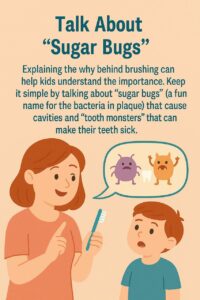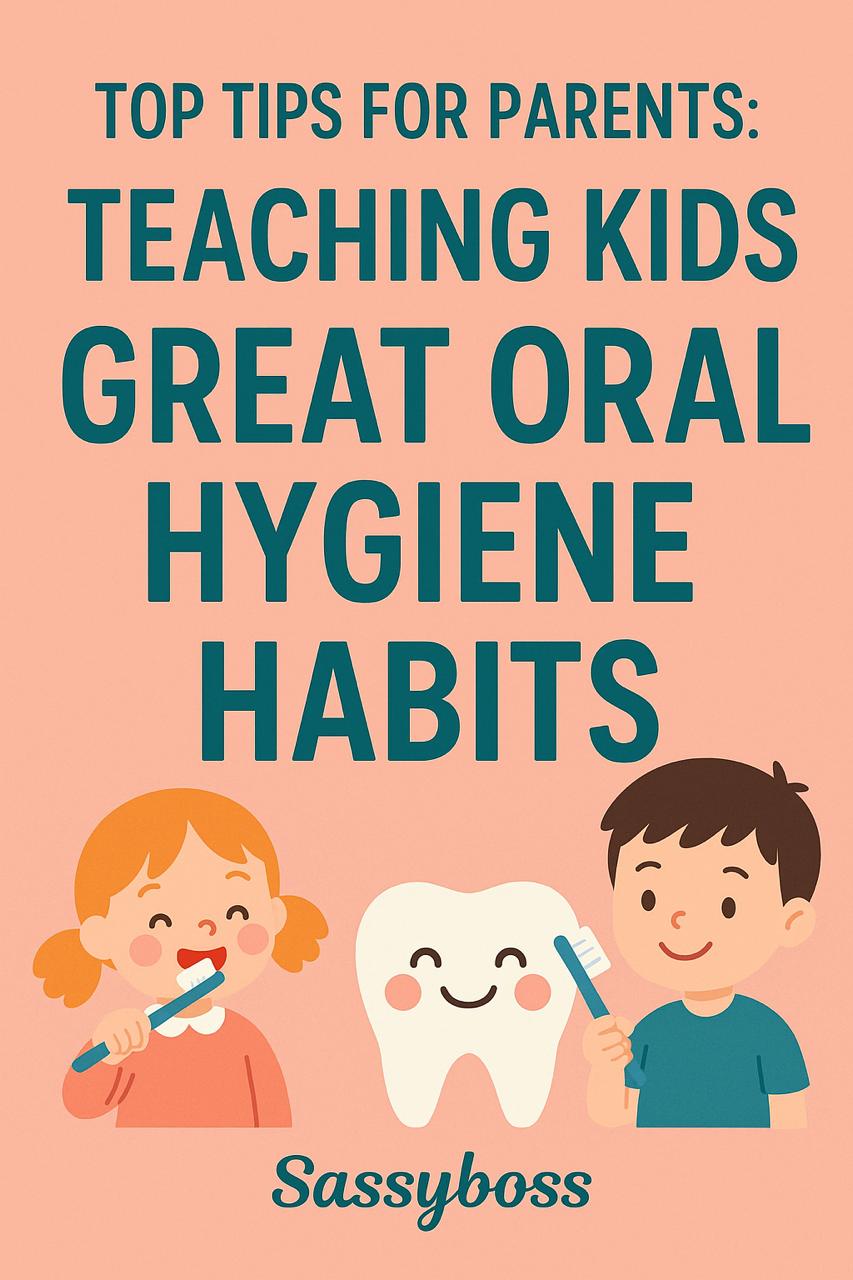Top Tips for Parents: Teaching Kids Great Oral Hygiene Habits
As a parent, you’re always working hard to build a strong foundation for your child’s health—and oral hygiene is a big part of that. Good dental habits formed early in life not only prevent cavities and toothaches but also promote confidence and long-term wellness. But let’s be honest: getting your child to brush their teeth isn’t always easy.
Whether you’re dealing with a stubborn toddler or a distracted tween, here are the top tips to help you instill great oral hygiene habits in your kids—without the struggle.
1. Start Early—and Keep It Consistent

The journey to healthy teeth begins before your child even has them. Start by gently wiping your baby’s gums with a clean, damp cloth after feedings. Once the first tooth pops through, begin brushing with a soft-bristled toothbrush and a tiny smear of fluoride toothpaste (about the size of a grain of rice).
By age 3, most kids can use a pea-sized amount of toothpaste and start learning how to brush with guidance. Brushing twice a day—morning and night—should become a consistent part of their routine.
Tip: Make brushing part of a daily ritual, like right after breakfast and before bedtime, so it becomes as normal as putting on pajamas.
2. Lead by Example
Kids love to copy their parents. One of the simplest and most effective ways to teach good oral hygiene is to let them see you taking care of your own teeth. Brush and floss together as a family. This not only sets a great example but also makes oral care a shared activity instead of a chore.
Bonus: It’s a great opportunity to spend quality time and reinforce other positive routines.
3. Make It Fun
Let’s face it—brushing teeth isn’t the most exciting thing for a child. But you can make it more engaging with a few creative tricks:

• Use a timer or play a two-minute song to make sure they’re brushing long enough.
• Get colorful, fun toothbrushes featuring their favorite characters.
• Try apps and videos designed to encourage kids to brush properly.
• Create a reward chart to track progress and celebrate consistency.
Turning dental care into a game or fun activity can make all the difference.
4. Teach Technique, Not Just Routine
It’s not just that kids brush—it’s how they do it. Many children need hands-on guidance until at least age 7 or 8. Show them how to:
• Use gentle, circular motions.
• Reach all surfaces: front, back, and chewing surfaces.
• Brush their tongue to remove bacteria and freshen breath.
Flossing is often overlooked, but it’s vital—especially once teeth begin to touch. Start flossing for your child and gradually teach them the proper technique as they grow older.
5. Talk About “Sugar Bugs”

Explaining the why behind brushing can help kids understand the importance. Keep it simple by talking about “sugar bugs” (a fun name for the bacteria in plaque) that cause cavities and “tooth monsters” that can make their teeth sick.
Use books or cartoons that show what happens when teeth aren’t taken care of. The more relatable and visual it is, the more your child will connect with the concept.
6. Visit the Dentist Regularly
The American Dental Association recommends children see a dentist by their first birthday, or within six months of the first tooth appearing. After that, regular checkups every six months help monitor development and catch problems early.
Positive dental visits can build trust and reduce fear, so choose a pediatric dentist who creates a kid-friendly experience. Don’t forget to celebrate the visit afterward—a small treat (not sugary!) or extra bedtime story can do the trick.
7. Be Patient and Encouraging

Every child develops at their own pace, and it’s normal for them to resist brushing or forget sometimes. Instead of nagging, stay calm and encouraging. Praise their efforts, no matter how small, and gently correct technique when needed.
Pro Tip: Avoid using brushing as a punishment. Keep it positive, and over time, it will become a habit they take pride in.
Final Thoughts
Teaching kids great oral hygiene habits is a long-term investment in their health and happiness. It may take some creativity and patience, but your efforts will pay off in bright smiles and cavity-free checkups. By starting early, leading by example, and making the process fun and educational, you’re giving your child the tools they need for a lifetime of strong, healthy teeth.
Remember: good habits begin at home—and every small step today sets the stage for a healthier tomorrow.
